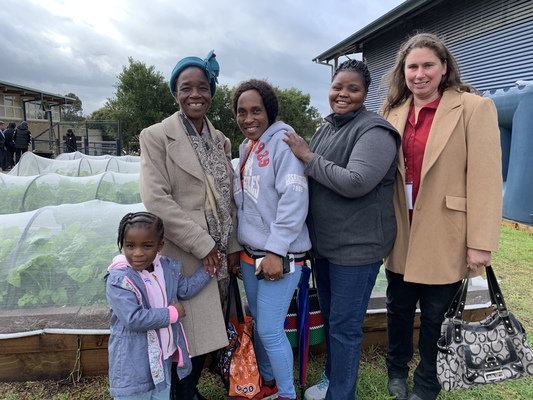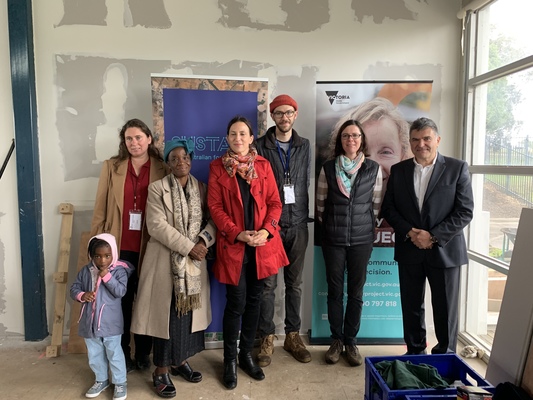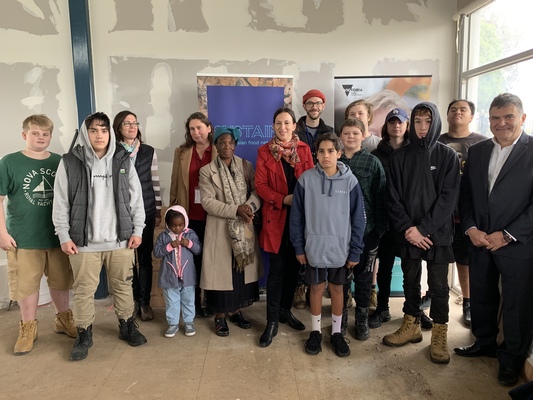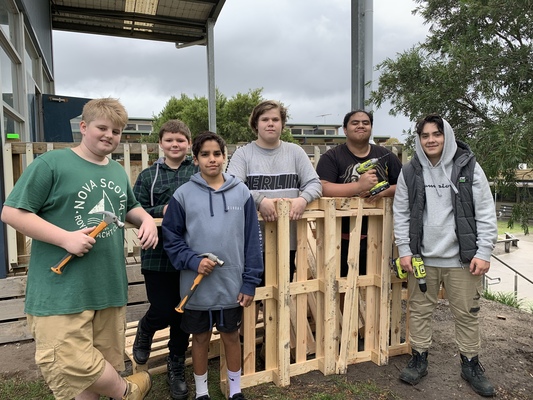
By Jessica Anstice
Member for Bass Jordan Crugnale visited Pakenham Secondary College on Wednesday to congratulate the school on their Community School Farm project.
Pakenham Secondary College received a grant through the Pick My Project community grants initiative last year.
The Community School Farm project increases excitement around growing fresh food and encourages vocational pathways for youth by developing a community school farm – one at the school and the other onsite at a local organic dairy farm in Longwarry.
Solid progress has been made with the Project since funding commenced in February 2019 including the formation of a Hands-on Learning (HOL) group of students across Years 7-10.
The HOL group are constructing garden beds and also fitting out the dome multi-purpose school building with benches and seating in preparation for its use as a kitchen and dining facility.
“At the moment we’re building a compost pit which means less food will be wasted and it will be used to spread nutrients throughout the school grounds,” Pakenham Secondary College Year 7 students Daniel Wittaker said.
“I have been working outside once a week for eight weeks now. It calms me down a lot and it’s nice to occasionally get out of the classroom.
“When I finish school I want to be a carpenter so this program is really helpful for reaching my goal.”
Designs are being developed for a more substantial growing space whilst a harvest festival will be held in late June to officially launch the project.
“A project such as this promotes hands-on learning which engages students in new and different ways,” Pakenham Secondary College environmental science teacher Allison Barrie said.
“Despite living in one of Australia’s most significant food bowls, many students have never set foot on a farm nor have they grown their own produce, so to be able to offer this experience both at school and on a working farm has been fantastic.”
The project also includes community groups within the wider Cardinia shire, with the connection to the broader Cardinia Food Movement which has been facilitated since 2016 by Sustain with the support of Cardinia Shire Council.
At the farm site in Longwarry, a group of more than 30 families from five different African communities have formed a United African Farm Collective.
Over the past month, they have planted approximately 400m2 of alluvial soil with mixed lettuces, collard greens, brassicas and other crops.
The collaboration has attracted significant interest amongst Melbourne’s wider African community with people travelling from Caroline Springs and Sunshine West to participate in the planting project. The project has also inspired financial support from the national African diaspora.
“I am really thrilled with the way we are progressing especially with the African community,” African Farm Collective leader Queyea Tuazama said.
“The energy and enthusiasm from this community has surpassed anything that I could have imagined. “I can’t think of a better example for young people to have to grow food and the importance this community places on organically grown produce as well as understanding the benefits that community has on mental health.”
Vicki Jones, who owns the farm in Longwarry which has enabled the initiative to flourish, is keen to see fellow farmers incentivised to offer their land for similar community farming projects.
“Farming really is such an untapped resource, it would be wonderful to see more farms opening up to facilitate schools and local community groups,” Ms Jones said.
“To encourage this, government could incentivise farmers by offering rebates on their loans if they are open up to community farming projects.
“It has been such a great initiative and there is no doubt that farmers benefit from working more closely with the community too – the benefits really do flow both ways.”









